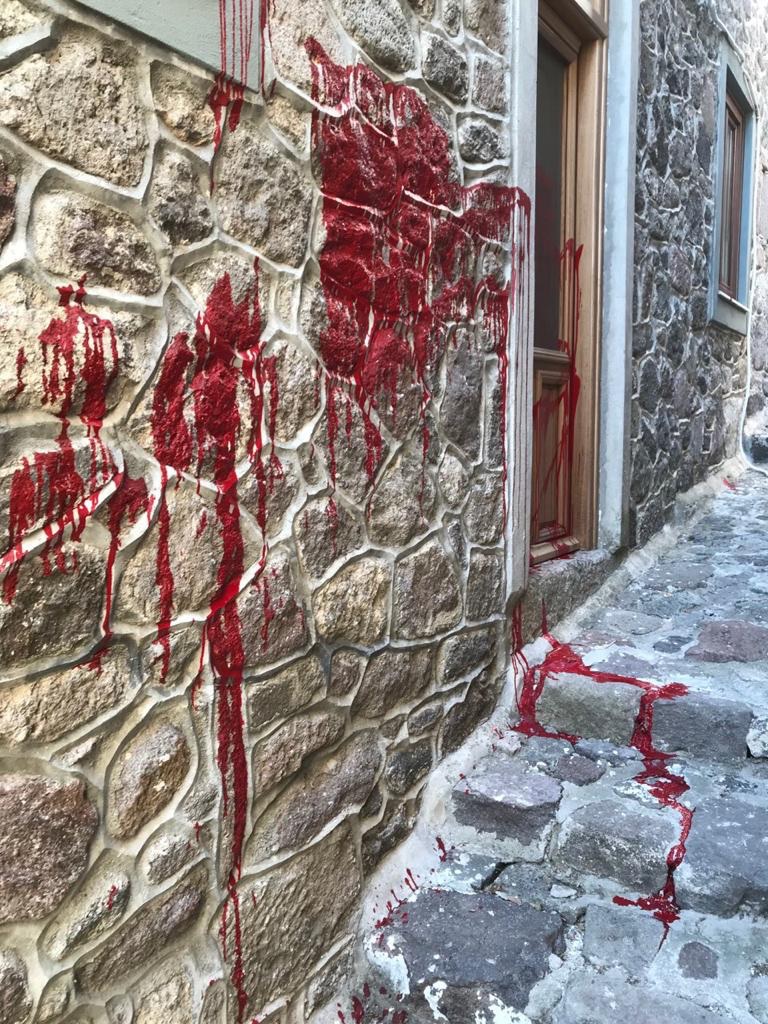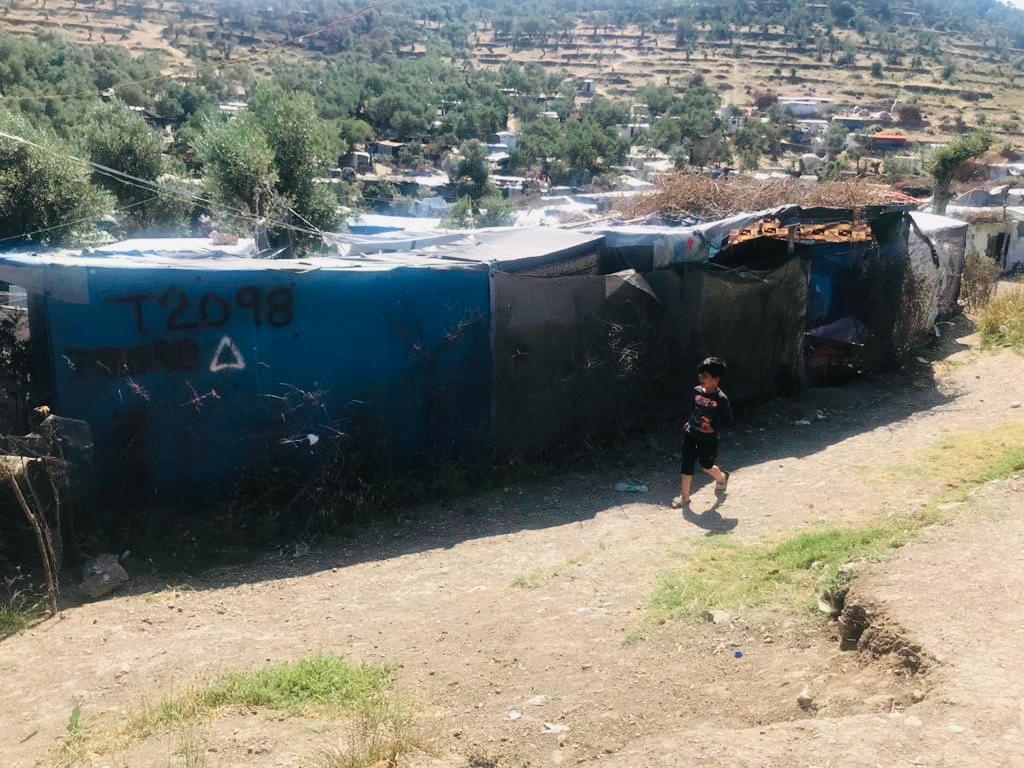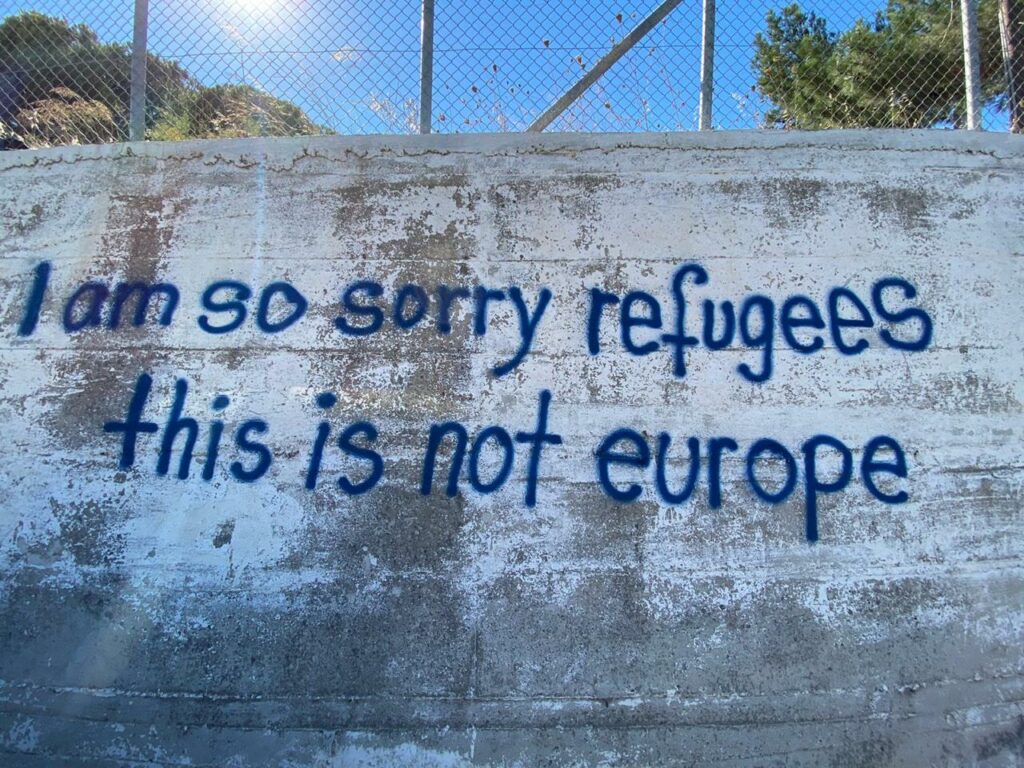Since lockdown, relations between local and refugees have become worse. There are some striking parallels with the 1930s but is the EU listening to Lesvos? By Lena Altinoglou

Since lockdown, the environment on Lesvos has become more hostile. Hatred of refugees by ultra-right-wing groups, and hypocrisy among police and politicians are poisoning the island. Nothing seems to improve, despite the best efforts of those of us working to support refugees. There is a constant mobilization of far right groups. Volunteers are constantly being targeted by local vigilantes who vandalise our homes, daub red paint on our doors, roam around on bikes with hunting rifles on their backs, shout abuse at refugees on the street, suddenly jump out of alleyways and attack refugees, even mothers and children. Who do they blame for all their problems? Refugees. No-one feels safe anymore.
Even before lockdown things were getting bad on the streets. People would shout at us (those working to support refugees) calling us whores and traitors, saying to us: “If you love refugees so much why don’t you take them home and feed them?” Others would cry “We are determined to fight them to death!” Where will this all lead if hatred builds up on both sides now? I call it the ‘spiral of hate’. The refugees on the island may not as yet be willing or able to defend themselves against persistent attacks, but for how long? They are being treated like animals. It is very ugly. What choice do they have but to wait and hope that they can get their papers and leave the island which is every refugee’s dream?
It’s very dispiriting. There are some striking parallels with the 1930s when the economic hardship combined with the rise of racism and fascism. Warnings were issued then, but did anyone listen? Did anyone listen to the Jews? Is anyone listening to the refugees stuck on Lesvos and elsewhere on the external borders of Europe today? It seems they are not. And yet, this kind of spiralling of hate is exactly what the EU was supposed to prevent. They failed.
I am afraid of what is to come, especially this winter if over 20,000 refugees remain stuck inside Moria camp. Moria is a “hell on earth” for people forced to live there. For the seventh time, the lockdown of refugee camps in Greece has been extended. Not for two weeks – as before – but for the whole month of August. At this point, this means almost six months of lockdown for thousands of women, men and children stuck in overcrowded camps across Greece. Once more, there is no public health justification for the lockdown. It is a miracle that there are no positive COVID-19 cases in any of the camps in Greece. But for how long?

Local people are suffering greatly and have their own financial and existential. Due to Covid lockdown, tourism on Lesvos is suffering and a lot of families are struggling to make ends meet. Instead of presenting their concerns to politicians, some resort to violence and hatred. Everything is seen in black and white terms. Their anxieties fuel hatred against people who are involved in helping refugees and turning them into a target. For example, there have been numerous attacks against hotel owners who offer to shelter refugees.
One hotel owner explained in a local newspaper article how, at the beginning of July: “An angry crowd of up to 500 residents were looking for me to lynch me. They vandalised and damaged my hotel. They remained gathered for hours by the hotel before then moving to the port where they found my car parked and looted it. Printed leaflets had been circulated in advance to mobilise these attacks. Police and legal authorities were informed about this plan to incite acts of violence. Nothing was done.”
While Europe stays silent, watching, commenting, it does not act. It is of course very convenient for Member States to use Lesvos as a prison island for thousands. Naturally, locals feel excluded and ignored by the EU. Rage is escalating alongside doubt about the fundamental principles that inspired the birth of the EU. It is imperative that viable solutions are found but again we ask – who is listening to Lesvos?

Lena Altinoglou is a co-founder of Lesvos Solidarity. For many years she has contributed to developing Pikpa refugee camp which offers a safe haven for the most vulnerable refugees. She also helped found Mozaic, a cultural centre, and currently manages Nan restaurant in Mytilene – a successful local-refugee enterprise partnership. All these initiatives are run by volunteers and are independent of state control, depending on donations. If you would like to donate, that would be most appreciated.
Comments
Submit a Comment